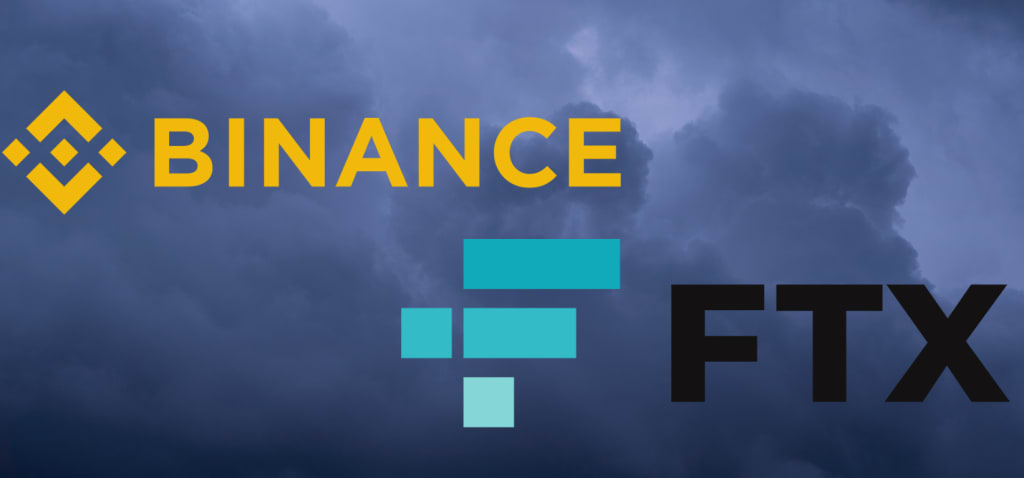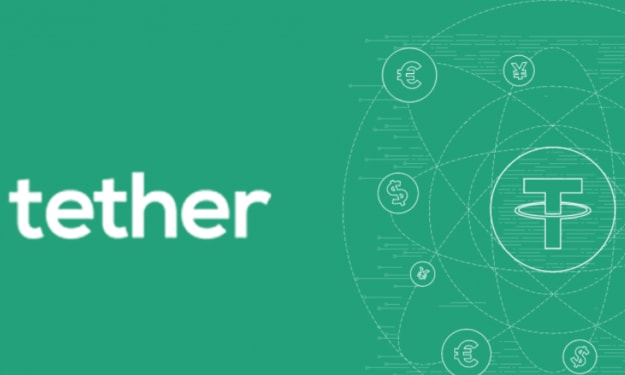Is Binance facing the same fate as FTX? A closer look
Exploring the potential consequences of regulatory scrutiny on Binance, in light of FTX’s experience

Introduction
Cryptocurrency exchanges have played a crucial role in the growth and adoption of digital assets in recent years. Two of the most prominent exchanges in the market are Binance and FTX, both of which have seen significant growth in the past few years. However, with increased regulatory scrutiny on the cryptocurrency industry, these exchanges have come under increased scrutiny as well. In this article, we will take a closer look at the regulatory challenges faced by Binance and how they compare to those faced by FTX. We will explore the potential outcomes and consequences of this scrutiny, and discuss the implications for the cryptocurrency industry as a whole. Understanding the potential fate of Binance is important not only for investors and traders but also for the future of cryptocurrency regulation.
Background Information
A. Brief history of Binance
Binance is one of the largest and most popular cryptocurrency exchanges in the world, with a reported 24-hour trading volume of over $40 billion in March 2021. The exchange was founded in 2017 by Changpeng Zhao, a software developer and entrepreneur with a background in finance and blockchain technology. Since its launch, Binance has expanded its offerings to include spot trading, margin trading, futures trading, staking, and other services. The exchange has also launched its own cryptocurrency, Binance Coin (BNB), which has become one of the top 10 cryptocurrencies by market capitalization.
B. Brief history of FTX
FTX is a relatively new cryptocurrency exchange that was founded in 2019 by Sam Bankman-Fried and Gary Wang, both former traders at the quant trading firm Jane Street. FTX has gained popularity in the industry due to its innovative trading features, including leveraged tokens, options, and volatility indices. In addition to its exchange services, FTX has also launched a range of other products, such as a decentralized exchange (DEX) and a cryptocurrency wallet. The exchange has also gained attention for its sponsorship of major sports teams and events.
C. Comparison of the two platforms
While Binance and FTX are both cryptocurrency exchanges, there are some notable differences between the two platforms. Binance has a longer history and a larger user base, with a wider range of services and more established partnerships. FTX, on the other hand, has gained a reputation for innovation and has been able to attract attention through its unique trading features and marketing initiatives. Both exchanges have faced their fair share of regulatory challenges, which we will explore in the next section.
The Issue at Hand
A. Regulatory scrutiny of Binance
Binance has been facing increased regulatory scrutiny in recent months from various authorities around the world. In June 2021, the UK’s Financial Conduct Authority (FCA) ordered Binance to halt all regulated activities in the country. Since then, other countries such as Japan, Germany, Italy, and Thailand have also issued warnings or taken action against Binance. The regulatory concerns primarily relate to Binance’s lack of regulatory compliance and anti-money laundering (AML) measures.
B. FTX’s experience with regulatory action
FTX has also faced regulatory action in the past, although to a lesser extent than Binance. In December 2020, the US Commodity Futures Trading Commission (CFTC) ordered FTX to pay a $150,000 fine for allowing US residents to trade on its platform without proper registration. The exchange has since taken steps to comply with US regulations and has obtained licenses to operate in certain US states.
C. Potential consequences for Binance
The consequences of regulatory action against Binance could be severe, with potential impacts on the exchange’s operations, reputation, and user base. If Binance fails to address regulatory concerns, it could face fines, penalties, or even suspension of its operations in certain jurisdictions. The uncertainty around Binance’s future could also lead to a decrease in user confidence and trading volume on the platform. Furthermore, if Binance were to face similar consequences as FTX, it could result in a significant shift in the cryptocurrency industry as other exchanges may be more cautious about regulatory compliance.
Current Situation
A. Binance’s response to the regulatory scrutiny
Binance has responded to the regulatory scrutiny by taking several steps to improve its compliance measures. The exchange has hired more compliance staff, implemented stricter KYC (know-your-customer) procedures, and announced plans to launch a global regulatory compliance hub. Binance has also announced that it will work with regulators to address concerns and obtain necessary licenses in jurisdictions where it operates.
B. The impact on Binance’s operations
The regulatory scrutiny has already had an impact on Binance’s operations. In addition to the FCA’s order, Binance has also discontinued services in certain countries, such as Canada and the Netherlands. The uncertainty around regulatory action has also led to a decrease in trading volume on the platform, with some users moving their funds to other exchanges. However, Binance remains one of the largest cryptocurrency exchanges in the world, and it is unclear at this point how significant the impact of regulatory action will be on the platform’s long-term viability.
C. Market reaction to the news
The news of regulatory action against Binance has had a mixed impact on the cryptocurrency market. While some investors and traders have expressed concern about the potential impact on the industry, others have viewed it as a positive development that could lead to increased regulatory clarity and legitimacy for the cryptocurrency industry as a whole. The market reaction to the news will likely continue to evolve as more information becomes available about the potential consequences of regulatory action.
Potential Outcomes
A. Binance obtains necessary licenses and compliance
One potential outcome for Binance is that it is able to address regulatory concerns and obtain necessary licenses to operate in various jurisdictions. If Binance is successful in this endeavor, it could regain user confidence and resume normal operations in those regions. This outcome would require significant investment in compliance measures and cooperation with regulatory bodies.
B. Binance faces penalties and fines
Another potential outcome for Binance is that it faces penalties and fines for non-compliance with regulations. This could have a significant impact on the exchange’s financials, reputation, and future prospects. Additionally, regulatory action against Binance could lead to a decrease in trading volume on the platform as users may look for alternatives.
C. Binance ceases operations in certain jurisdictions
Another potential outcome for Binance is that it may need to cease operations in certain jurisdictions where it is unable to obtain necessary licenses or comply with regulations. This could result in a loss of market share for Binance and a shift towards other exchanges that are able to operate in those regions.
D. Impact on the cryptocurrency industry
The potential outcomes for Binance will have significant implications for the cryptocurrency industry as a whole. If Binance is able to address regulatory concerns and obtain necessary licenses, it could set a precedent for other exchanges to follow and increase the legitimacy of the industry. On the other hand, if Binance faces penalties and fines, it could lead to increased regulatory scrutiny of other exchanges and a decrease in user confidence in the industry. The impact of these potential outcomes will be closely watched by investors, traders, and regulators alike.
Analysis and Discussion
The regulatory scrutiny that Binance is facing is not unique in the cryptocurrency industry, but it is particularly significant given the exchange’s status as one of the largest and most popular in the world. The increased regulatory attention on Binance and other cryptocurrency exchanges could be seen as a positive development, as it may lead to increased clarity and legitimacy for the industry. However, the potential consequences for Binance could also be severe, including fines, penalties, and suspension of operations in certain jurisdictions.
Binance’s response to the regulatory scrutiny has been to improve its compliance measures and work with regulators to address concerns. While these steps are necessary to ensure the long-term viability of the exchange, they also require significant investment in resources and time. The impact on Binance’s operations has already been felt, with discontinuation of services in certain countries and a decrease in trading volume on the platform.
The potential outcomes for Binance are varied and will have significant implications for the cryptocurrency industry. If Binance is able to obtain necessary licenses and comply with regulations, it could set a precedent for other exchanges to follow and increase the legitimacy of the industry. However, if Binance faces penalties and fines or needs to cease operations in certain jurisdictions, it could lead to increased regulatory scrutiny of other exchanges and a decrease in user confidence in the industry.
Overall, the regulatory scrutiny that Binance is facing underscores the need for increased regulatory compliance and oversight in the cryptocurrency industry. While this may lead to short-term challenges for exchanges like Binance, it could also lead to long-term benefits for the industry as a whole. It remains to be seen how the situation with Binance will evolve, but it will undoubtedly continue to be closely watched by investors, traders, and regulators alike.
Conclusion
The regulatory scrutiny facing Binance is an important issue for the cryptocurrency industry as a whole. While Binance is taking steps to improve its compliance measures and work with regulators to address concerns, the potential consequences of regulatory action could be severe. The outcomes for Binance will have significant implications for the industry, and the situation will continue to be closely watched by investors, traders, and regulators alike.
Ultimately, the increased regulatory attention on Binance and other cryptocurrency exchanges could lead to increased clarity and legitimacy for the industry. However, it will require significant investment in compliance measures and cooperation with regulatory bodies. The cryptocurrency industry must navigate these challenges in order to ensure its long-term viability and continued growth.
About the Creator
Samuel
I write about Science/Tech/Business & Anything that can give value to people ❤️
I'm on YouTube too guys feel free to check out my channel here: www.youtube.com/@sambladeco
Enjoyed the story? Support the Creator.
Subscribe for free to receive all their stories in your feed. You could also pledge your support or give them a one-off tip, letting them know you appreciate their work.






Comments
There are no comments for this story
Be the first to respond and start the conversation.